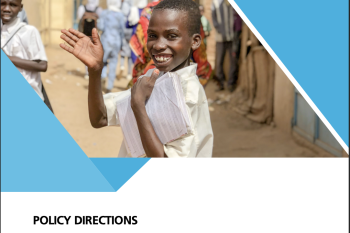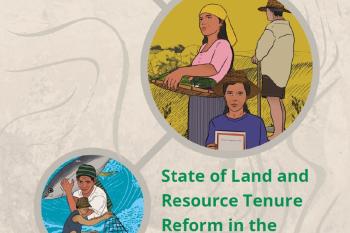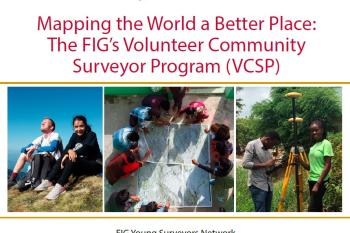Women's housing, land, and property (HLP) rights contribute to preventing and recovering from conflict and fragility by reducing the likelihood of violent conflicts re-igniting and assisting communities in emerging and recovering from war. They increase food security, agricultural productivity and production, and they are critical to promote the realization of other interconnected human rights, such as an adequate standard of living, adequate housing, protection against forced eviction, and gender equality. Further, secure land rights improve the trust in institutions, a critical factor for state and peacebuilding in fragile settings.
Women’s role as peacemakers, mediators and negotiators within their communities is pivotal to the prevention and resolution of conflicts and it needs to be given more attention. Further, women's contributions to peace initiatives need to be expanded through increased participation in peace negotiations and peacebuilding initiatives, as well as peacekeeping, humanitarian assistance, and post-conflict rehabilitation. To be able to do so effectively, women must feel safe in their communities and able to engage in decision-making and planning. Secure housing, land, and property rights are enabler of both.
The Key Messages on Sustaining Peace through Women’s Empowerment and Increased Access to Land and Property Rights in Fragile and Conflict-affected Contexts were developed based on the field experience of UN-Habitat, the Global Land Tool Network, the HLP Area of Responsibility of the Global Protection Cluster, UNHCR, NRC and their partners, in fragile and crisis affected contexts. The Key Messages provide a quick reference on how to empower women and protect their housing, land and property rights in fragile and crisis affected contexts, and why this is an essential element to sustain peace and stability. The publication also includes a list of useful resources to further inform the development of related programmes and projects. The messages are relevant for different groups of women and girls, independently of their ethnicity, status, disability, sexual orientation or any other characteristic they identify with.



